The morning at the border post was surprisingly cool and windy. Chilled a bit,
we rolled the bikes to the immigration office to have our passports stamped.
While the officer was flipping through my collection of visas, I scanned the
notice board. There was a visa price list, which stated that the regular cost
was double for Americans (perhaps because they are all rich) and quadruple for
Pakistanis.
“Excuse me”, I asked the officer. “Why the Pakistani people have to pay 200
dollars for the visa?”
“Because we don't need them!”, was the swift and frank reply.
Another thing we should learn from Africans: drop that silly political correctness and say thighs openly.
Then we rolled down to Kigoma, once again meeting with the Lake Tanganyika. Thanks to Michał's good relations with Catholic church we had a free camping space, access to showers and a big table to spread the map on. The first day of rest after three weeks of constant, hard cycling!
However interesting were the recent adventures, we both felt tired. And in regard to the time estimates we were falling behind the pessimistic variant. Michał had a deadline and by crossing Burundi we ventured far away from any asphalted roads in Tanzania.
The other option was present just a few hundred meters from our location, in the form of a railway station. Kigoma is the end of the Central Line. Eventually we decided to split up. He went to the long queue waiting for the ticket office to open and I pedalled away.
The first visible difference between Tanzania and previous countries is the lower number of people. Villages appeared sparsely and their inhabitants also behaved more tactfully. There was not much shouting of “mzungu!” and even the kids usually kept silent. That was a pleasant change.
For the most of the first day I had asphalt, but in the evening it stopped once and for all, giving way to a dusty road being worked on by some Far Eastern company. It was surrounded by endless bush, which, two months before the rains would come, seemed to be dry as tinder. Columns of smoke marked places where someone had set fire, which consumed the brown plants surprisingly slowly. It just crept, swallowing smaller ones and leaving trees standing still. Perhaps it was just a technique of getting rid of thorny undergrowth and getting easy access to more valuable firewood.
The dry season severely limited choice of foods. Roadside stalls displayed very narrow set of fruits at high prices. Access to water was also limited, but fortunately there were some rivers around and ground water level was still high enough to supply some of the wells. However, the liquid drawn from there sometimes resembled milk, due to fine dust floating within.
The dust was everywhere. The African soil, since I had left Sahara, very seldom seemed to have something like grain structure. Usually it just crumbled into smaller and smaller particles, quickly turning into fine powder. Very soon I was completely covered in it, as every passing car rode a few times too fast and raised huge clouds.
The drivers' behaviour never stopped wondering me. Average African usually lives at much smaller pace than Europeans used to do. He works no more than it is really necessary and feels easy at doing nothing. However, just put him behind a steering wheel and suddenly he becomes a daemon of speed. The heavy leg pushes accelerator into the floor, like the fate of the world depended on his early arrival. He knows no fear and no respect for smaller users of the road. How it works, I do not know, but it might be a good topic for psychologists.
The dust settled not only on my skin and clothes, but also on the bike components. The chain quickly turned dirty and noisy and required cleaning and re-greasing after as little as 40-50km. In marked a half of a cycling day very well and called for a break. In the noon hours it was anyway too hot to cycle and the headwind was at its' strongest, making the progress even more difficult.
After the initial bush the surroundings changed into quite pleasant sparse forest. I had learned that in Africa everything stings, has thorns or at least attaches to the clothes. Here, surprisingly, the plants were smooth and much more friendly. Choosing a place to lay down for a mid-day nap was easy: just find a shade and make sure there are not many insects. Mango trees provided the best conditions, but unfortunately they usually grew in villages.
At the second day I crossed Malagarasi river. It looked clean and I took the opportunity to rinse dust from my body and bike. The bridge foundations were a place where the locals used to bathe or take water, so the arrival of a mzungu quickly gathered a small crowd. Although I used the water in exactly the same way as they did, for some reason it brought a lot of comments and laughter.
Another two dusty day days later I arrived to a town called Urambo. A local teacher helped me to find cheap accommodation and food, then recalled that once in the past another mzungu cyclist had visited the place. He was from Spain and going around the world. It happened in... 1997. Certainly, that sounded like a reason for me to be an attraction for the natives.
The next day I arrived to the city of Tabora. The plan was to stay and rest
for a day, but arriving already in the dark I could not find a place. All the
guesthouses were full. Asking people, I was directed to a big building which
had a restaurant and offered rooms quite more expensive than I hoped for. They
were all occupied anyway, so I retreated. I was just about to pedal away, when
the manager appeared and stopped me.
“Do you have a tent?”, he asked.
“Yes.”
“You may have difficulties in finding a place to stay in the city. But there
is some little space behind my building. It is safe but a bit dusty. Then you
may use hot shower in the building.”
“Good. How much would it cost then?”
“I don't want money from you. Just wanted to help.”
That way I met Alnashir, a member of the significant community of Asians in Tanzania, with roots in the Indian Subcontinent. He not only gave me a place to stay, but also invited for a dinner and breakfast. Seems that even far away from homeland the Asian Muslims keep the tradition of enormous hospitality.
From there I followed another dusty road. It was more busy, more dirty and sometimes so sandy that I had to push the bike. The villages appeared more often and vegetation was sparse, which forced me to look for a camping site well after the sunset. Fortunately, at the end of the second day I reached asphalted road. After almost 500km on the dirt it was a great relief, even thought the wind was blowing straight into my face.
To the dry season add Ramadan, which had begun two days before. Finding food was not easy. As the next day of struggle against the wind was coming to end, I stopped in a small village and asked for honey at a shop.
The Muslim shopkeeper was just about to close the business before the sunset
prayer. His reply was negative, but another customer heard my question.
“Are you fasting, sir?”, he asked.
“No. I'm not Muslim.”
“I can help you with my honey. Follow me, please.”
And minute later broadly smiling Abdul was pouring honey into my bottle from his big container. For free, and wishing me a good journey. Perhaps if I had answered positively to his question, an invitation for iftar would follow.
That night I gave up pitching the tent. I lay on the dry, scorched surface of a harvested field, and the cold wind blew over my head. The first tea was delicious, but the next one I spat out with disgust. The water from the other container was almost undrinkable. Soon I would learn that it was quite common in that area.
On the next day first mountains appeared. The uphill was a nice change. Out of two labours I prefer to climb, gaining altitude, than to waste my energy against wind. In the late afternoon I reached Singida and found a nice guesthouse, which would be the place for next day's rest.
The town, although connected to the world with asphalt, was still poorly supplied. As I lost my patches somehow, I was going from one bike shop to another in a search for that cheap Chinese thing. No chance. All the mechanics used old inner tubes and scratched them with metal saws before gluing on. That was a surprise for me. I had been expecting Tanzania to be a developed country (in African scale), like Kenya. With a huge disappointment I found its' western part to be underdeveloped and sometimes even resembling Ethiopia in that matter. Just a wild west.
When I finally left Singida, the wind tried to blow my head off. Fortunately, after some 20km I turned northwards and it was not working against me so much anymore. I approached the edge of the plateau. Leaving the descent for the next day, I again camped without a tent in a place where the slope dropped dramatically.
Waking up in Africa in a moist sleeping bag is quite surprising. Totally overcast sky surprises even more. Crawling out into strong, cold wind and jumping on the bike in such conditions is quite difficult. Especially when you have almost nothing for breakfast and the water you carry is so awful that even a hot tea does not seem appealing. Good that a village was not far away and the chapatis were accompanied by a tea made on hot goat milk.
The descent was not so close as I had imagined. A long stretch of hills lay before it, but in the evening I finally rolled down to Babati. There I met the first other touring cyclist since Ethiopia. We were, however, expecting different prices and standards of accommodation and quickly went different ways.
Before me lay the Masai Steppe. Actually covered by sparse bush, for me it was just a flat stretch of very busy road. Half of the traffic consisted of safari-equipped 4x4s, carrying wazungu to national parks. The number increased significantly on the next day, after I had passed the road leading to Serengeti and Ngorongoro.
Where the rich white people go, there is the worst thing I found in Africa: beggars. It was sad to find young Masai, in their traditional clothes and face paintings, standing by the road just looking for an opportunity to get some cash for a photo or for free. It was even more sad to meet schoolboys, who even did not learn “hello” from English lessons, just “give money”. But my patience was already gone. I chased all of them away with a stick. It is amazing how well it works against Africans, who probably remember it as educational tool in the first years of the school.
Another two days and I reached Arusha. The city was too big and too busy to be interesting, but finally there was some choice in the shops. After first night in the centre, I moved away to an empty camp site located in much more silent area.
A group of wazungu appeared in the evening, together with their drivers and a cook. When they left in the morning to Serengeti, the boss of the Kenyan staff shared a breakfast with me: delicious pancakes and fruits.
Despite the dry season, at the foothills of Meru I experienced a little rain. The first since very long time. But I was leaving that mountain, constantly hidden in the clouds. I went to Moshi, which lay at Kilimanjaro. After ten weeks and 4000km I came back almost to the same place where I had celebrated the first year on the road.
Now it is time to go south, finally.

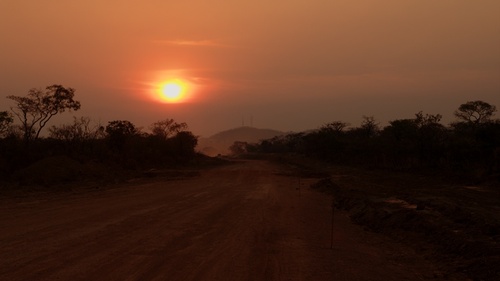
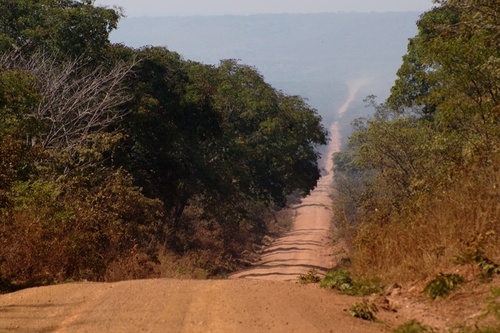
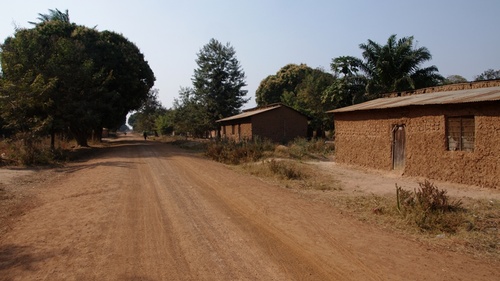
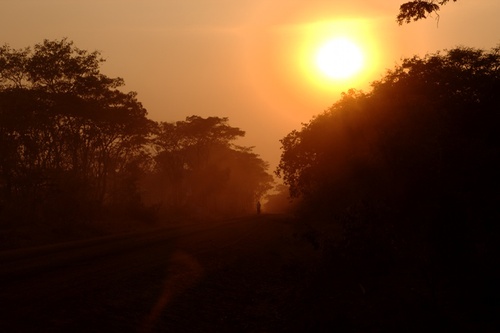
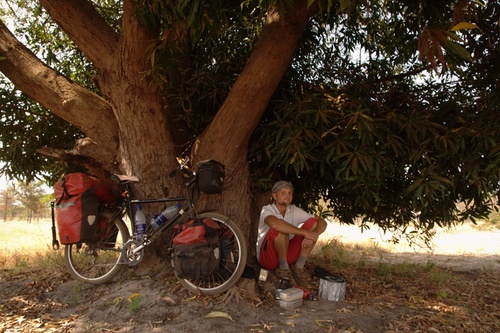
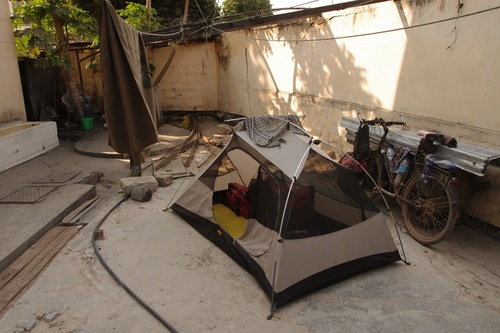
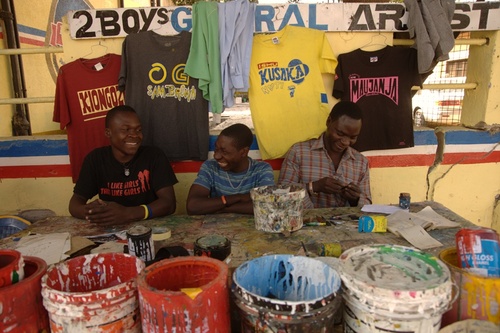
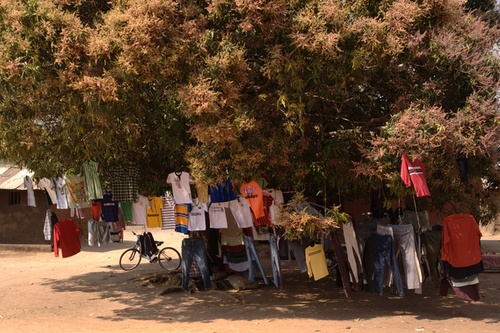
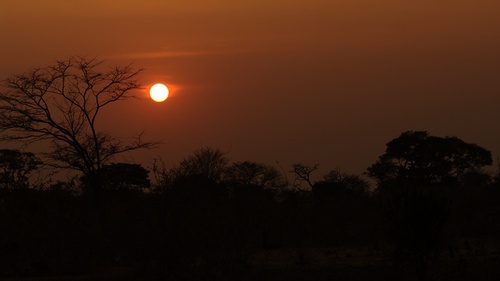
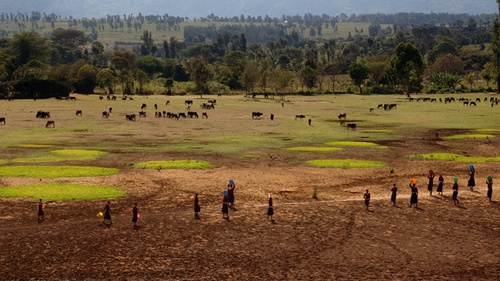
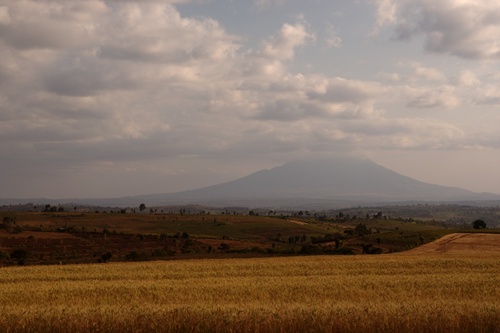
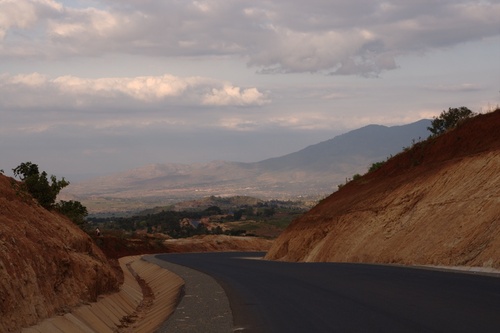
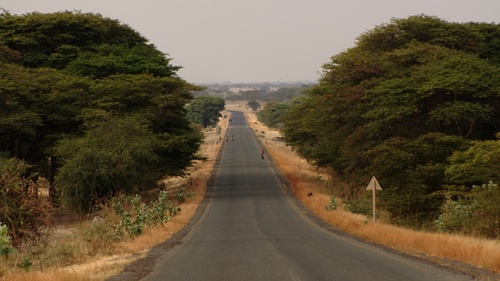
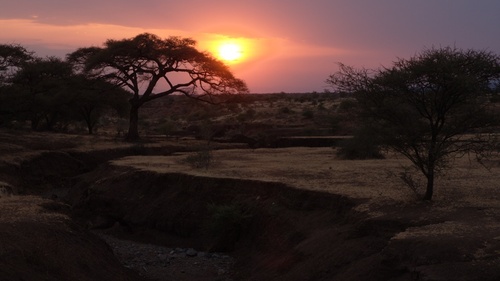
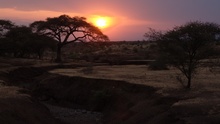
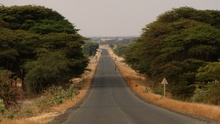
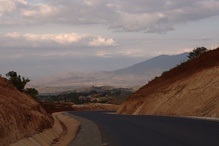
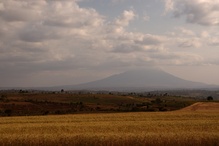
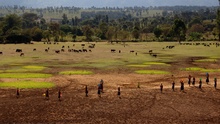
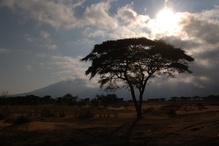
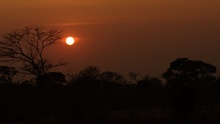
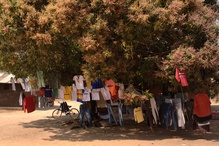
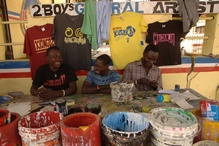
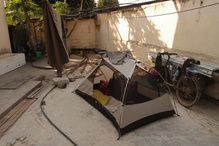
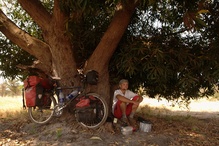
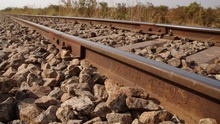
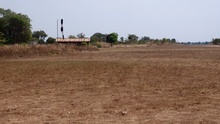
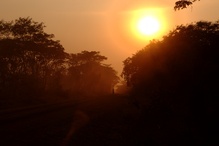
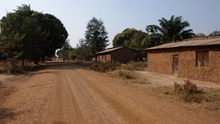
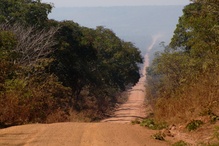

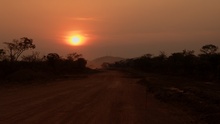
Comments:
Vito
mama
hdk
powodzenia, lubelszczyzna trzyma kciuki (objadając się bobem, cukinią, pesto, sałatką z rukoli i popijając schłodzoną gazowaną muszyniankę hehe) ! :)
Aga i Adam
Zdaje się, że dość późno rozglądasz się za noclegami.
Pozdrawiamy mocno!
Jeszcze z Wrocławia... :)